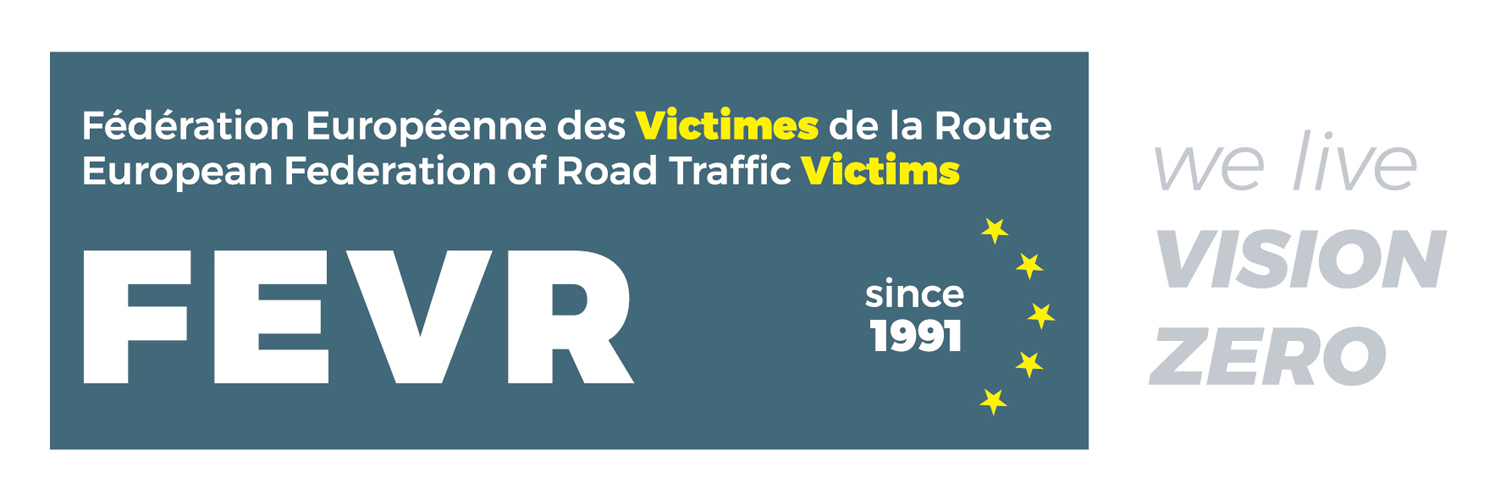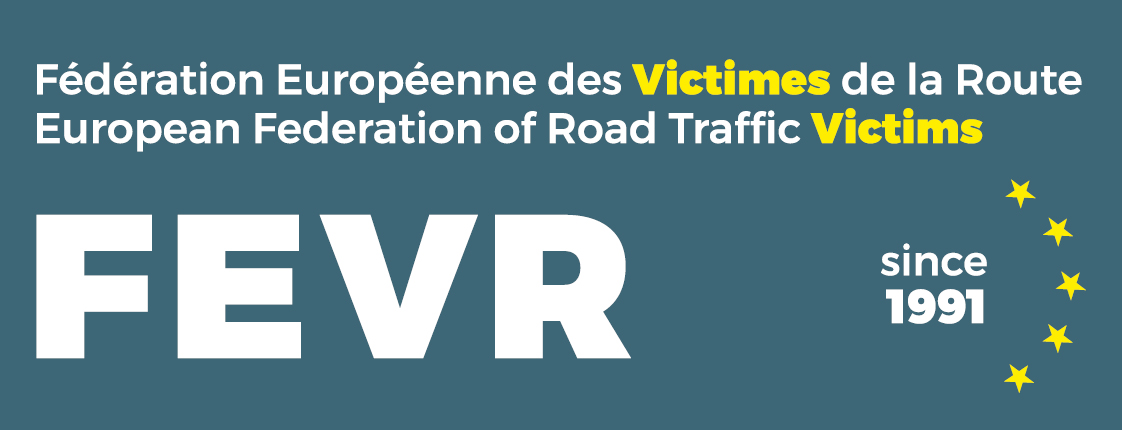Who are we? What is FEVR?
“Working to protect the interests of road crash victims & to reduce road danger”
– a Federation of different organisations countries in Europe and beyond, who offer help and assistance to road victims and campaign for their rights and for the reduction of road danger.
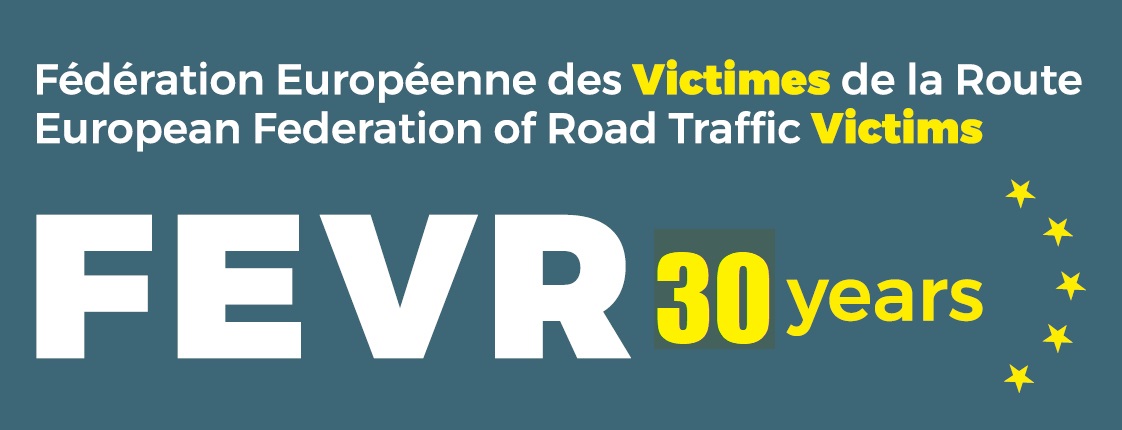
FEVR was formally founded in Geneva on 6th of July 1991, by Professor Marcel HAEGI with the objectives to promote assistance to road victims at international level in Europe, work for prevention of crashes and strengthen contacts and collaboration between road victim associations from the various countries.
Many of those organisations have been set up by victims themselves when they experienced that no help was available to people whose close relatives were killed or injured in a road crash or who have been injured themselves.
Our Annual General Meetings are held in the countries of our members – with our member organisations hosting those meetings in turn – which gives us all the opportunity to learn about road traffic conditions and problems in individual countries, as well as meet collaborators of our member organisations and speak to their media.
FEVR is celebrating 30 years of working for a better deal for road crash victims – July 2021 in Krakow.
FEVR wants to see the situation of road crash victims improved. It champions their rights, represents their voice and campaigns for legislative improvements – at relevant United Nations working parties, at meetings, conferences and seminars of relevant Institutions and Bodies, through consultations, statements, contributions to articles and through many other means.
FEVR is a member of the UNRSC (United Nations Road Safety Collaboration) chaired by the World Health Organisation.
FEVR also has Consultant Status (Roster) at UNECE (United Nations Economic Council for Europe)
We are member of EuroSafe, associate member of VSE ( Victim Support Europe) have a MoU with EFA ( The European Driver Instructors Association ) and collaborate with various associations with common objectives through Europe and globally
FEVR is the creator of the World Day of Remembrance for Road Traffic Victims (www.WorldDayofRemembrance.org) – a Day, which FEVR members have begun to observe jointly on every third Sunday in November from 1995 onwards. Through our membership of the UNRSC, which we informed of this Day, our World Day has become a UN-registered Day and is now observed on every continent – by relevant NGOs, institutions, companies, government departments and individuals.
"Learn from yesterday, live for today & hope for tomorrow" We work on the 3 important pillars: health, safe and sustainable transport and a fair justice system. If I could have a wish today: that we come close to zero fatalities and zero serious injuries one day.
“Together with our members we also campaign – we feel we are forced to campaign – on issues of road victim treatment, justice or rather lack of justice, and on road danger issue”
“FEVR’s objectives are to decrease the number of road traffic crash victims, improve the situation of the victims, and all the related problems caused by road crashes in Europe and elsewhere.”
How being a member of FEVR can benefit your organisation

A stronger voice for small organisations
Most of our organisations have their origin in a personal tragedy and hence most are generally small and poorly resourced national organisations, who have taken on the huge task of trying to address the much-neglected issue of road death and injury and road victim treatment, and to make a positive difference in their own countries.
Being affiliated to an international umbrella organisation can make small organisations like ours, not only appear stronger to the outside world, but actually be stronger by being united in pursuance of the same goals or aims.
Greater chance for our demands to be met
There is a greater weight to our demands on behalf of road crash victims if we make those against the background of this international coalition, and therefore a much greater chance for those demands to be met.

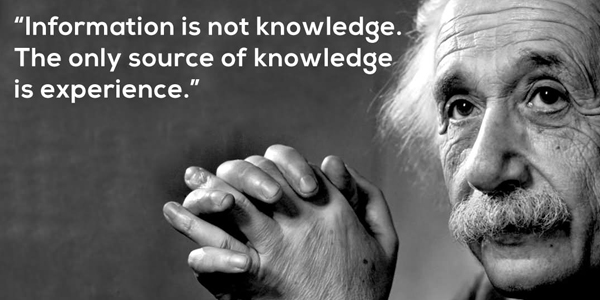
Sharing of knowledge and experience
Being part of this network also gives us an opportunity to learn from each other’s knowledge, initiatives and experiences, so that we and the people we represent can benefit, and we do not need to struggle alone or miss valuable opportunities.
Meetings in countries of colleagues
Having the meetings hosted by colleagues in their own countries has proved to be a wonderful idea and chance to learn at first hand about each sister organization and about traffic and related situations in the member countries. We wish to continue with this practice, as this also gives additional opportunities to organizations to hold press and other conferences and to highlight their international membership with the media.

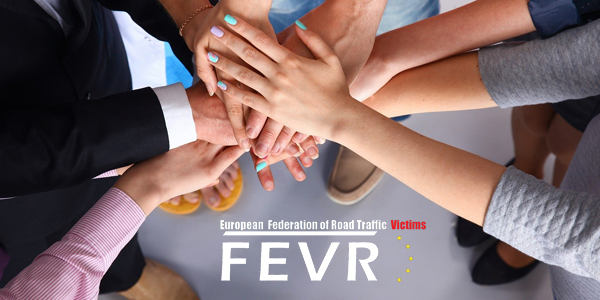
Joint projects
The joint projects conducted in the past have been important and unique initiatives, which have served to publicize the plight and needs of road crash victims and the urgency of giving greater attention to them. Cooperation is needed for planned future projects relating to post crash areas, esp. the legal response to road death and injury.
